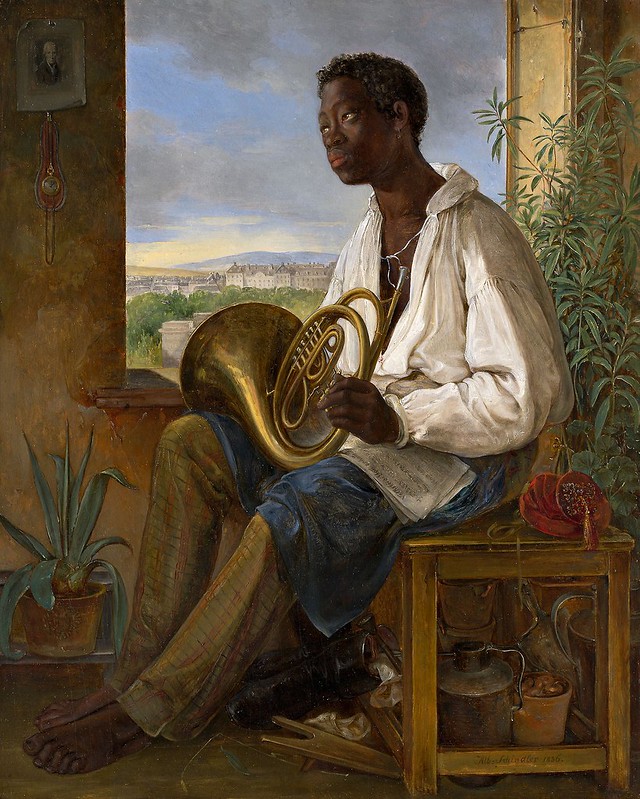Anton Teyber (1756-1822)
- Concerto per il Corno
Performers: Zbіgnіеw Zuk (horn); Wroclaw Chamber Orchestra; Jan Stanіеnda (conductor)
Further info: Anton Teyber (1756-1822) - Missa in D (c.1793)
---
Austrian composer, pianist, organist and cellist, son of Matthäus Teyber
(c.1711-1785) and brother of Elisabeth Teyber (1744-1816), Therese
Teyber (1760-1830) and Franz Teyber (1758-1810). After early education
in Vienna he studied for some years in Bologna with Padre Martini, being
there almost certainly as late as 1775. He then appeared in several
Italian musical centres, touring with his sister Elisabeth, and in Spain
and Portugal (also Germany and Russia, according to a biographical
sketch), before returning to Vienna about 1781. He was admitted to the
Viennese Tonkünstler-Sozietät in 1784, and in 1787 entered the
Hofkapelle at Dresden as first organist. At the end of 1791 he returned
to Vienna and on 1 December took up a post as deputy to Joseph Weigl at
the National-Hoftheater. However, cuts in the musical establishment
under Franz II led to his losing his post, though he was successful in
petitioning the emperor for help; on 1 March 1793 he was appointed court
composer (a post that had not been filled after Mozart’s death) and
instructor in keyboard to the imperial children. A Missa solemnis in C
minor was written for and performed on the occasion of Archduke
Rudolph’s appointment as Cardinal and Archbishop of Olmütz (Olomouc) in
1819 (the archduke was a pupil of both Teyber and Beethoven), and he is
recorded as having conducted other large works in the imperial chapel in
1820 and 1821; a mass by him was performed with great success at Olmütz
Cathedral on Easter Sunday 1822. He also wrote a melodrama Zermes (or
Zerbes) und Mirabelle (1779), two oratorios, Gioas, rè di Giuda and La
passione di Gesù Cristo (performed in 1805 for Teyber’s benefit at the
Tonkünstler-Sozietät), and a quantity of orchestral, chamber and church
music, most of which was bought from his widow by Archduke Rudolph and
later passed with his estate into the possession of the Gesellschaft der
Musikfreunde.

Cap comentari:
Publica un comentari a l'entrada